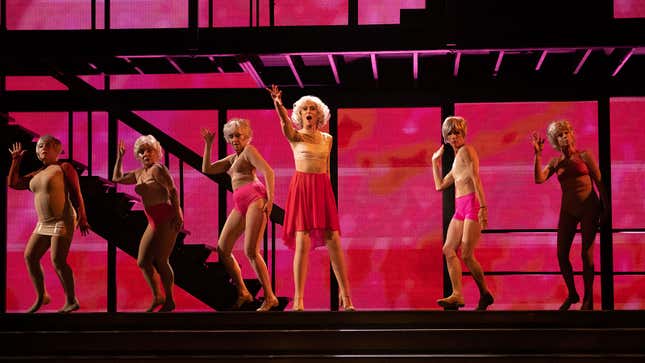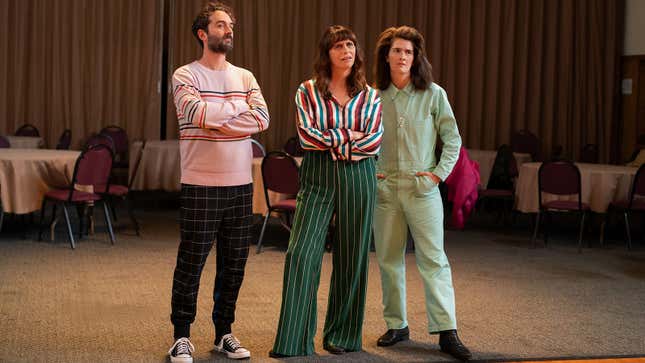
Image: Amazon Studios
Strewn among the heap of the Transparent: Musicale Finale’s terrible choices is one very, very good idea. Call it transgenre: The half-hour dramedy series that ran for four seasons has transitioned into a 100-minute musical for its final bow. And, yes, it’s that kind of musical. It’s not merely punctuated with music and sing-alongs of preexisting songs, as Transparent has been in the past—this is the kind of production where characters spontaneously burst into original songs and do jazz hands. A show that centered on a transgender character while frequently demonstrating that all people are in some kind of transition to some extent lives by its own truth and stays in flux to the glittery end. That’s kind of brilliant.
This formal exercise even has the potential to impart empathy to its viewers. For essentially the entire first season, and intermittently throughout the next three, we watched as Maura Pfefferman’s family and friends adjusted to her transition. It wasn’t always easy, and they didn’t ask for it. But too bad, that’s life. So are we, as viewers, made to adjust to the show’s transformation. An earnest musical that wields amateurishness as a virtue may not be what we signed up for, but it’s what we ended up getting. So deal with it, says Musicale Finale.
Spoilers ahead.
-

-

-

-

-

-

-

-

-

-

-

-

-

-

-

-

-

-

-

-

-

-

-

-

-

-

-

-

-

-

-

-

-

-

-

-

-

-

-

-










































